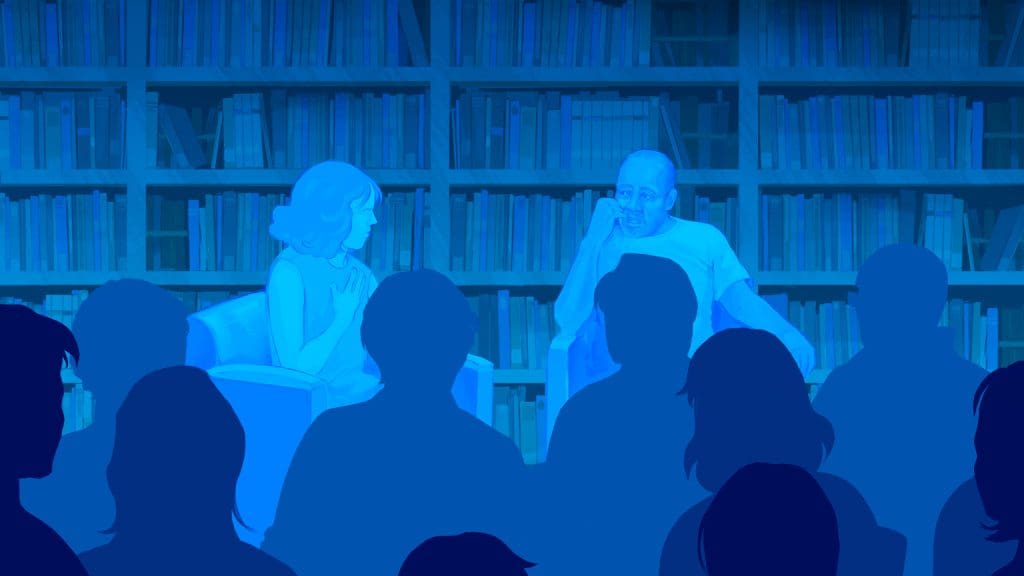
It doesn’t get much more democratic than a group of people gathered in a public library to talk about the survival of democracy.
Over the summer, five faculty members from the Department of Political Science visited two public library branches in Baltimore County to share thoughts and historical context about the fragility of democracies around the world, followed by audience questions and discussion.
The goal, says series organizer Lester Spence, was to fulfill a responsibility he says his field owes the public at large.
“Over the past several years I, like many others in the academy, have been concerned with not just our democracy, but with democracy more broadly,” says Spence, professor in the department. “I believe that political science and political scientists have a particular obligation to use our expertise to inform in order to improve civic capacity.”
Learning together
How Do Democracies Survive? was a three-part series that explored various aspects of the stresses many democracies around the world currently face, including the restriction of rights and the elimination of checks and balances. Many sessions attracted upwards of 50 participants, and participants often attended two or all three of the sessions, which delved into democratic backsliding, its causes and consequences, and prospects for the renewal of democracy. The series was held twice: once at the library’s Pikesville branch, and once at Perry Hall.
The series fit Baltimore County Public Library’s goals of providing non-partisan opportunities for civic engagement and presenting programs that build media and information literacy skills, says Paula Gallagher, adult and community engagement specialist for the library. Participants quickly rose to the challenge.
“The overwhelming response from our audiences has been gratitude. They really wanted this kind of learning opportunity, but didn’t know where to find it,” Gallagher says. “Dr. Spence and the other Johns Hopkins professors shared historical knowledge and observations from their areas of political science expertise, which greatly added to everyone’s understanding of what’s happening today in our country.
“People want tips on how to have political discussions with family members and colleagues who have different viewpoints, which the professors addressed. Audiences were grateful for thoughts and ideas on how to be more involved in civic engagement.”
Creating connections
The discussion format might reach fewer people than a media appearance, for example, but it allows for a depth of engagement that seemed to resonate with participants, says Adria Lawrence, Aronson Associate Professor of International Studies and Political Science.
“Our audience members are well-read and engaged, but the reason they attend is that they are trying to make sense of what is happening and what we’re all reading about, and looking for ideas about how to understand the political climate as well as how to act,” Lawrence says. “We’re bringing our expertise, which may be on the U.S. or on other parts of the world, but other participants are also sharing their perspectives, making these events an opportunity to exchange views.”
As Americans strive to understand our national political environment and how it’s changing, Hopkins political scientists have an important public role to play by talking through the questions on people’s minds, Lawrence adds. Participants, she says, wanted to discuss such topics as whether American democracy is under threat; if we’re experiencing an unprecedented period of political history or if there are historical analogies to the Trump administration; what cases in history and globally can help us understand the changes we see in our political system; and how ordinary citizens can help to strengthen democracy.
“I think these kinds of community gatherings have the potential to connect people and keep them engaged politically, which is important when it can be so tempting to tune out national political developments and withdraw in apathy,” Lawrence says.
Rooted in community
Spence believes the series’ conversational structure helped generate their steady demand and strong response. “I didn’t want it to be too didactic, and wanted to give audiences outside of the academy an opportunity to see academics agree and disagree in public, while still offering evidence-based, empirically driven content,” he says.
Since the 2016 election, he adds, civic education institutions have developed to focus on American democracy, but few are rooted in community the way this series is. “What type of change could we generate,” he asks, “if we simply went into these library systems and offered our expertise within them?”
In addition to Spence and Lawrence, participating faculty included assistant professor Consuelo Amat, senior lecturer Matthew Kocher, and professor Adam Sheingate.
